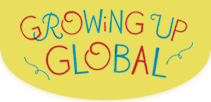The euphoria of the final World Cup match is over and so many people around the world don’t know what to do with themselves. Summer 2010 has been marked by one nation after another facing off in the stunning World Cup, with the entire world (especially the Americans, more than ever before in the game’s history) tuning in, and the continent of Africa proudly and ably starring as host. I’ve been fascinated to stumble on so many learning opportunities afforded by South Africa’s role and the fact that soccer, known as the beautiful game, is also the world’s game, inciting the passions of people of every culture, income level and belief system.
So many organizations rallied to bring hope to South Africa’s poor and youth while the world’s spotlight was there. Among these include Unicef, as well as Streetchildworldcup.org, Grassrootsoccer.org, and Play31. Al Jazeera media’s show Witness just came out with a terrific 22 minute piece that showcases one of these projects; the segment is called Kick It Up South Africa, linked here. Global Girl Media, a U.S. non-profit organization, trains girls from underserved communities as new media citizen journalists to speak out about the issues that affect them most. For the 2010 World Cup they worked with a group of teens from Soweto, the poor township of Johannesburg which played a key role in the struggle to end apartheid.
Witness – Kick It Up South Africa
Watch the video (click on the link right before this paragraph) with your children ages ten and older. It affords so many learning opportunities (beyond that of seeing one of many positive, instructive pieces on Al Jazeera, which many Americans might still equate – erroneously – as “terrorists’ media”). Start with “easy” stuff, like trying to pronounce (and appreciate) the names of the South Africans in the video; notice the neighborhoods, their clothing – what is different, what is similar? Can you imagine yourself in the marching band or as a fan on the way to the game, going to South Africa? Then go deeper: why would successful American journalists take time out of their lives to work with young girls from a poor South African township? Why is it important to single out girls to work with? What can we learn from the example both of the trainers as well as the girls experiencing the media training? What do you think it means to be a “global girl (or boy)”? As an adult (or youth volunteer), what could you do to empower young people in your local community? What are the needs you could help address to give hope, purpose and encouragement? Beyond your immediate environs, how could you apply your skills and interests to making a difference in the global community?
One of the girls in the group, Tebogo, has lived the nightmare of AIDS, intimately in her family. Her personal reflection is moving and difficult, but also instructive. We can learn of the reality of AIDS’ impact and the real pain that comes with it. Additionally, the process of learning to reflect at many levels is valuable: to reflect on one’s life circumstances, as well as on opportunities and experiences that come along, can serve as a great learning and growing experience. The arts, like poetry and creative writing, filmmaking, drawing, painting, sculpting, drama, music and dance can give moving expression to your personal expression, and sport can serve as a venue for uniting, celebrating and learning.
At the end of the essay introducing the video, producer and founder of Global Girls media, Amie Williams, concludes with a moving, reflective statement:
“They are the Global Girls of Soweto, and this is one World Cup that I can personally say has not only changed the face of football, but also uprooted the goal posts.”
By sharing a discussion around this video with your own tweens and teens and adult friends, it might even uproot your own goal posts this summer – and I’d love to hear of any directions your discussion and possible action ideas might have taken. Comment here, or on Growing Up Global’s Facebook community.


